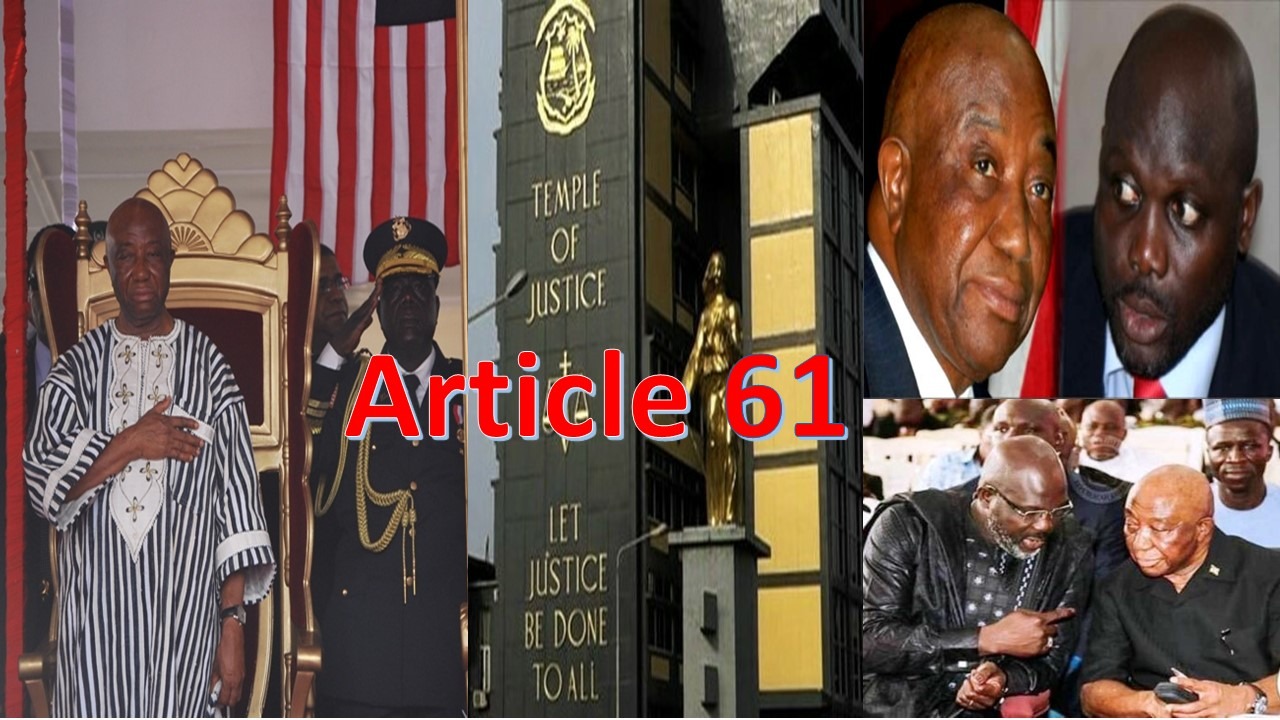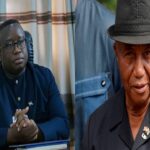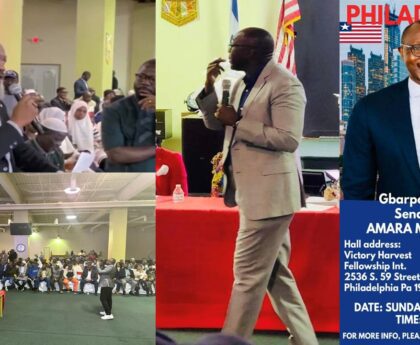As Liberia anticipates the transfer of power from President George Weah to President-elect Amb. Joseph Nyumah Boakai after the January 2024 inauguration, questions arise about the potential legal protection Article 61 provides to outgoing presidents. George Weah, facing potential allegations of corruption and mismanagement during his presidency, might consider the shield of Article 61’s immunity clause. However, a closer examination reveals the limitations of this protection once he steps down from office.
Article 61 of the Liberian Constitution states, “The President shall be immune from any suits, actions or proceedings, judicial or otherwise, and from arrest, detention or other actions on account of any act done by him while President of Liberia pursuant to any provision of this Constitution or any other laws of the Republic.” This clause seemingly offers broad protection to sitting presidents, shielding them from legal consequences for actions taken during their term.
However, the crucial aspect to consider is the timeframe of this immunity. Once George Weah concludes his presidency, as of January 2024, the protection afforded by Article 61 no longer applies. The phrase “The President shall not, however, be immune from prosecution upon removal from office for the commission of any criminal act done while President” makes it clear that the shield dissolves once the individual is no longer in the presidential seat.
President-elect Amb. Joseph Nyumah Boakai, assuming office after Weah, would have the authority to investigate, arrest, and prosecute his predecessor for any alleged criminal acts committed during Weah’s term. This includes acts related to corruption and mismanagement, which have been persistent concerns during Weah’s presidency.
The legal landscape in Liberia, therefore, provides a balance between protecting sitting presidents from undue interference and ensuring accountability for their actions after leaving office. Article 16’s immunity clause serves as a shield during the presidency but becomes a nullity once the individual is no longer in power. This design reflects a commitment to upholding the rule of law and preventing the misuse of presidential power for personal gain.
In conclusion, while Article 61 provides a temporary shield to President George Weah during his term in office, it does not grant him perpetual immunity. The phrase in Article 16 ensures that once George Weah steps down after the January 2024 inauguration, he can be held accountable for any criminal acts committed during his presidency. The transition of power in Liberia is not only a political change but also a legal shift that allows for the investigation and prosecution of former presidents, promoting accountability and transparency in the nation’s governance.




